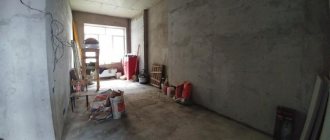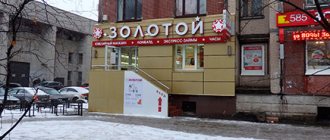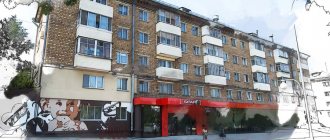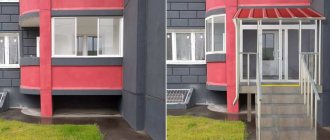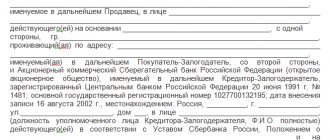Home / Housing disputes / Transfer of residential and non-residential premises / Is a garden house a residential or non-residential premises?
From January 1, 2021, Russian summer residents have already appreciated the changes in the law. Innovations affected primarily the concepts of “garden” and “country” house. But at the same time, confusion arose - should garden buildings in SNT be considered residential premises? If so, is it possible to register in such a house? If not, is it possible to transfer a garden non-residential property to residential status?
The truth is somewhere in the middle. Some premises are considered residential, while others are not classified as such. Let's see how a garden house differs from a residential one?
Non-residential or non-residential premises as spelled
Real estate is usually divided into residential and non-residential.
The first includes premises where people legally live: apartment buildings, dormitories, private houses. The housing stock also includes hotels. Non-residential property is most often used for commercial or public purposes. The need to transfer housing from one stock to another arises for many: entrepreneurs who bought housing in a building for a store or for conversion into an office. If such a need arises appeared in front of you, there is no need to get lost. There is a possibility of transferring the apartment to another fund. Transferring your home from residential to non-residential and vice versa may become necessary for many reasons. Most often, businessmen convert purchased apartments into shops, pharmacies, restaurants and cafes, offices. The status of residential premises is needed because only in it you can register, yes and live too. If you decide to translate
What objects belong to this category of buildings and structures?
Such real estate is divided into:
- main;
- and auxiliary.
The first can be used separately, and the second is needed for maintenance and use of other premises. For example, a school office is the main room, and the corridor is an auxiliary room.
also a division according to intended purpose . In accordance with it, premises can be:
- Educational (these include buildings of kindergartens, schools, universities, etc.).
- Healthcare (for example, hospitals, clinics, emergency rooms).
- Industrial.
- Administrative.
- Utilities (gas, water, electricity, heat supply).
- Catering.
- Household services (these include studios, laundries, dry cleaners, repair shops and others).
- Trade.
- Relaxation and entertainment.
- Post offices (post offices).
- Warehouse.
- Creative (workshops and exhibition halls).
Not with adjectives. Together and separately. Table
In what cases is it written not together with an adjective, but in what cases - separately?
If the word is not used without: rainy nondescript careless
If a word with the opposite meaning is formed, there is a synonym without not: small (small) not bad (good) incorrect (erroneous)
There are added words very, very, extremely, extremely, completely, completely, almost, partly, completely, extremely: extremely careless very unkind
With adjectives from which it is impossible to form antonyms with non-
Relative adjectives: The door is not iron
Possessive: The coat is not daddy's
Qualitative, indicating color: Shirt is not green
If there is or is implied opposition: The path is not long, but short. Is the bag heavy? No, not heavy.
If opposition is implied, the negation is strengthened by pronouns and adverbs: This is by no means a true judgment. Not a happy feeling at all.
Separate writing "not used"
Participles are written separately with the particle “not” when they have dependent words : “a syringe not used by a doctor”, “a book not read on time”. Short participles are always written separately with the negative particle not: “not used”, “not read”. Examples of separate spelling “not used”:
- The discount coupon Olga did not use went to her younger sister.
- An oxygen cylinder that was not used during the previous dive was given to a new diver.
- Instruments not used during surgery are still sterilized.
The Anglo-American school in Moscow is an educational one. Children and parents are waiting with bated breath for the results of the Unified State Examination to understand which university they can attend. This is not just a private school, it is a huge holding company that provides.
Concept
First of all, let's figure out what is considered a living space and what is not?
- A residential building is a permanent building or house for permanent residence of citizens. People can apply for registration in a residential building.
Currently, residential premises are defined as “individual residential building”, “residential building” and “individual housing construction object”. These terms are considered one and the same concept (Clause 39, Article 1 of the Civil Code of the Russian Federation).
- Non-residential premises are a seasonal non-permanent structure for the temporary stay of citizens. A striking example is a garden house or outbuilding in SNT.
The main purpose of such a structure is for people to rest, store crops, equipment, and even a place to stay overnight. Owners can equip non-residential premises with a bed, TV, portable stove and electricity. But it is not recognized as residential.
A garden house is a building specifically for seasonal use (clause 2, article 3, Federal Law No. 217). It can be located in a gardening partnership or on agricultural land. A record of the presence of a country house is recorded in the state register - the owner has an extract from the Unified State Register of Real Estate indicating data about the building.
Continuous writing of adverbs
- B, ON, FOR + , numeral, pronoun, adverb + , = > to the left , for fun , for life , in short .
- FROM , TO, WITH, ON + adjective numeral , adverb + A, I, U => from a long time ago , before naked , with blindness , quietly .
- B + adjective with a consonant + YU => in the blind , in the hand , in the circle .
- collective ) , E , O => in two , in two , in three , in nine .
- IN, ON + pronoun => in everything, at all.
- ON + comparative degree of the adjective => richer , larger , rarer .
- Any preposition + adverb => by the way, to the top, throughout . BUT: until tomorrow, in the morning, forever, for after, not in a hurry, to the point.
The adverb with the particle the same and the pronoun with the particle the same deserve special attention. The interesting thing is that conjunctions are also always written together. So how is the same thing written: together or separately? They can easily replace each other, which is why they are called synonyms. Another conjunction that is close in meaning is considered to be and, which is often used as a way to distinguish both these unions and combinations of the same and the same. For example: I have also (also) never met him before. In this sentence, the replacement of conjunctions is obvious, which did not in any way affect the meaning of the entire sentence as a whole.
Examples of sentences when the phrase “at will” is a noun with a preposition:
- You could choose one exam at will: geography or biology.
- One of the exceptional abilities of a talented actor is the ability to cry bitterly or laugh cheerfully at any moment.
- Seafood salad can be dressed as desired: lemon juice or olive oil.
Examples of sentences when the phrase “at will” is an adverbial combination:
- The wedding salon offers celebrations in any style at the request of the newlyweds.
- At the request of the client, the renovation was carried out in a medieval style.
- You could agree or not to get vaccinated, it was all up to you.
“Cloud” or “cloud” – which is correct? If you are thinking about the answer, we recommend that you go to this article and see which letter is correct in this word.
How to convert a residential building into a non-residential building. What does the legislation say?
Articles 22-24 of the Housing Code of the Russian Federation define in detail the procedure for transferring residential premises to non-residential premises; the law stipulates what documents will need to be prepared for this.
The law also provides for the conditions that are necessary for the transfer of a residential building to a non-residential building and the grounds for refusing to satisfy an application for transfer to a non-residential building.
To transfer a residential building to a non-residential building, you will need to contact the local government authorities at the location of your residential building or directly through the multifunctional center for the provision of state and municipal services. Currently, citizens’ appeal to the MFC for the provision of state and municipal services is becoming increasingly popular.
It is necessary to understand that a package of documents must be submitted in relation to all residential premises as part of a residential building and on behalf of all owners.
- Statement. An application form may be provided for completion when submitting documents.
- Title documents for real estate (original or notarized copies).
- Technical passport of real estate.
- House plan.
- Project for reconstruction and (or) redevelopment of the transferred premises (if required).
The decision to transfer or refuse to transfer a residential building is made by the body carrying out the transfer of premises, but no later than 45 days from the date of submission of documents to this body. Further, no later than 3 working days from the date of the decision to transfer or to refuse the transfer, the applicant is issued or sent to the address specified in the application, a document that confirms the adoption of one of the legally required decisions.
A document that confirms the completion of the transfer of a residential building will be the basis for using the residential building as a non-residential building. Only if this does not require its reconstruction, and (or) redevelopment, or other work.
The corresponding changes will need to be made to the title documents and registration actions must be carried out.
It is necessary to understand that the future use of a non-residential building is possible subject to strict compliance with fire safety, sanitary, hygienic, environmental and other requirements established by law.
Necessary conditions for transferring a residential building to a non-residential building.
Let's look at what the Housing Code of the Russian Federation tells us about the necessary conditions for transfer:
- The transfer of a residential building for social use to a non-residential building is not permitted.
- The transfer of a residential building to a non-residential building for the purpose of carrying out religious activities is not permissible.
- The transfer of a residential building to a non-residential building is impossible if such a transfer cannot meet the established requirements and if the ownership of such property is encumbered by the rights of third parties.
It is important to note one detail that residential building owners are not always aware of. If the land on which the real estate is located is allocated for individual housing construction, then a non-residential building cannot be located on it
In this connection, local authorities will refuse to transfer a residential building to non-residential.
It is very important that when you are going to carry out the translation procedure, you must seek advice from a lawyer. Because, without special professional education, you may not be able to carry out the above procedure on your own
Grounds for refusal to transfer residential premises to non-residential premises.
Let's look at what could serve as a basis for refusing to transfer a residential building to a non-residential building. Article 24 of the Housing Code of the Russian Federation directly indicates in which cases local authorities refuse to transfer.
So, here are the reasons:
- if you have not provided the entire list of documents provided for in Article 23 of the RF Housing Code;
- if the relevant document is not submitted by the owner or his authorized representative on his own initiative;
- if such documents were provided to the wrong authority;
- if the conditions for transfer of the building were not met;
Continuous writing
The word “abroad” is formed using a prefix. In this case, it will be written together. The word means several states that are outside one's own country. When the word is declined, the word “abroad” is obtained.
Examples confirming this rule:
- We sign contracts with foreign countries in exceptional cases; we need to use our own reserves.
- Our enterprises did not count on supplies from abroad this year or in the near future.
- It will be increasingly difficult to cooperate profitably with foreign countries in the context of the global crisis.
The word is different
Let's look at how the word is spelled differently. Can be written in several ways. If you try to write in different ways on your phone or with a hyphen, the gadget will not underline the word and will not offer to replace it. Two different spellings are allowed. But this does not mean that the word means the same thing regardless of its spelling.
To find out how to spell correctly in different ways, you need to take a closer look at the word. Let's start our study with a close look at the part of speech.
If you try to look at the word, it obviously contains a reference to the adjective “different”. From the point of view of the Russian language, it is allowed to write an adjective with the preposition “by”. The reader remembers: the adjective is written separately from the preposition. Let's consider a few proposals:
- Parents could tell the twins apart by their different hair colors.
- Forest dwellers distinguish mushrooms by their different appearances.
But if the reader decides that he knows how to spell it differently, it’s worth giving another example.
“The example can be solved in different ways.”
Obviously, here “differently” is no longer an adjective, but an adverb. The correct spelling is necessarily different and will be correctly hyphenated differently.


